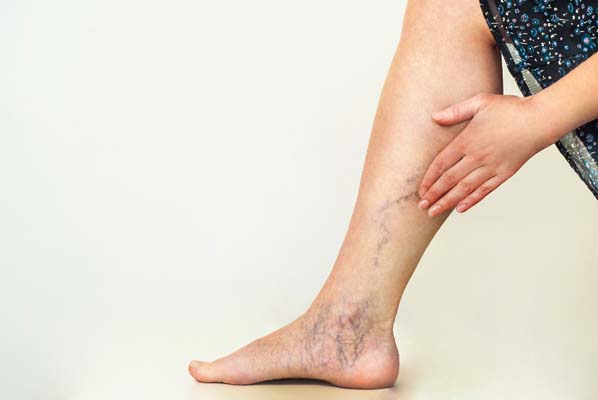What Is a Vascular Specialist and When Do You Need One?

A vascular specialist is a type of doctor who focuses solely on the vascular system, which in simpler terms refers to the blood vessels. The vascular system includes arteries, veins, and capillaries, which connect everything in the body.
Because the vascular system is so complex and has so many parts, the role of a vascular specialist is crucial. Continue reading to find out more about what they do on a daily basis and when it is recommended to see them.
Everything to know about vascular specialists
Below is a quick guide to everything that there is to know about the doctors known as vascular specialists. Review this information when curious about what they do and when to see them.
Diseases treated
A vascular specialist treats a wide range of diseases depending on the severity, other related existing health issues, and much more. Outlined below are some of those diseases.
- Aneurysm in the artery wall
- Varicose veins, which are simply veins that are swollen
- Aortic dissection, which occurs when there is a tear in the aorta's lining
- Arteries that are blocked or too narrow, causing clots
- Vasculitis, which is when the blood vessels are inflamed
- Pulmonary embolism
- High cholesterol levels in the arteries
- Stroke
Of course, there are other diseases that vascular specialists may treat or help prevent; however, those that are listed above are the most common.
It is recommended to see a vascular specialist when any of the diseases that are listed above are present or warning signs of these diseases have appeared. One's primary care physician or even cardiologist will likely refer one out to a vascular specialist if any of the diseases have been detected. The vascular specialist will likely make the final diagnosis and proceed with an appropriate treatment plan.
Treatment routes
Vascular specialists often treat diseases through the following methods:
- Administering blood pressure medicine or medications to prevent blood clots from forming. These medications may also help with cholesterol levels
- Assisting with lifestyle changes, such as dieting and exercise. Diet plays a big role when it comes to cholesterol levels
- Performing procedures to improve and increase blood flow and prevent clotting
- Performing surgical operations to prevent strokes
The difference in their role
People often wonder if a cardiologist and vascular specialist do the same thing. Simply put, no. The role of a cardiologist is very different in that they cover more than just the blood vessels. In contrast, vascular specialists spend their days solely trying to prevent, diagnose, manage, and treat vascular diseases. Of course, the two roles may cross over, and the two might even work together when treating certain diseases that relate to both areas.
Talk to a vascular specialist today
Individuals who are experiencing any of the diseases that are listed above may want to consult with a vascular specialist. Any questions or concerns about the treatment process can be appropriately addressed. To find out more, reach out today.
Request an appointment here: https://visoc.org or call Vascular & Interventional Specialists of Orange County at (714) 598-1194 for an appointment in our Orange office.
Check out what others are saying about our services on Yelp: Vascular Specialist in Orange, CA.
Related Posts
Hemorrhoid treatment options vary depending on severity and symptoms. There are many effective ways to manage hemorrhoids, such as through lifestyle changes, over-the-counter remedies, or more advanced medical procedures. Finding the right treatment can make a significant difference in achieving lasting relief.Hemorrhoids are swollen veins located in or around the anus and rectum, with internal…
Most uterine fibroids are noncancerous, and many patients do not realize they have them. This often leaves patients confused about what could have caused their fibroids, while they also wonder what exactly fibroids are. An OB/GYN can provide clarification on a patient’s unique condition. However, in the meantime, an overview may help.Fibroids are muscular tumors…
Curious about what varicose vein treatment from a cardiologist entails? Read on to learn more. Varicose vein treatment can significantly improve your appearance as well as your life. Varicose veins are enlarged, ropey veins that typically appear on the legs and feet. These oversized veins can often cause swelling, fatigue, and pain. They can also…
Wondering when joint pain treatment is necessary? According to Healthline, joint pain refers to discomfort, aches, and soreness in any of the body's joints. There are certain signs that warrant when treatment is necessary.There are many different things that can cause someone to experience joint pain, with rheumatoid diseases being one of the more common…
